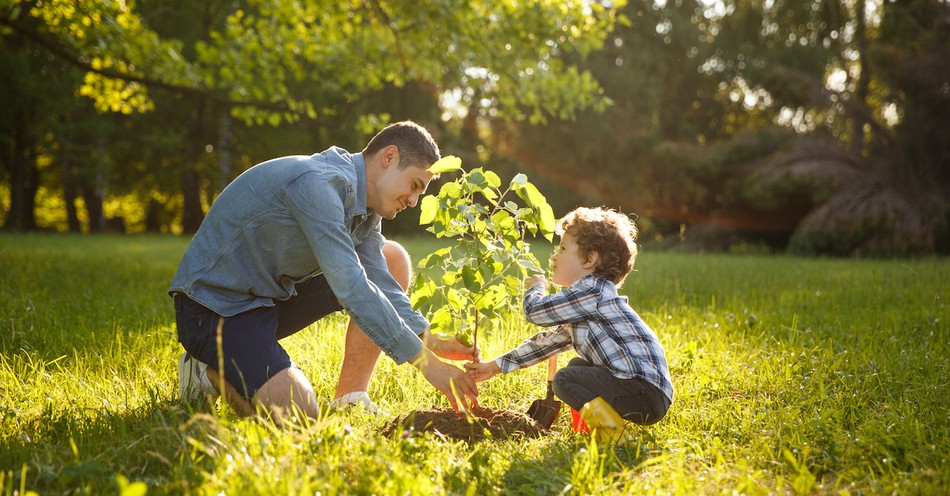These past 12 days, I have been house-sitting for a dear friend while she toured Scotland. Her cat has kept me company, and I have been able to pretend that I was not talking to myself but to the cat.
Now, as I prepare to bring my friend home from the airport, the time has come to clean and prepare: to leave her home in at least as good, if not better, shape than when she found it.
This is stewardship, a role that is spoken of several times in the Bible. There is a lot of responsibility associated with stewardship.
What Is Stewardship?
Oikonomia is “where a person looks after another's affairs (resources).” Between “steward” and “stewardship,” there are 22 references in the Old and New Testaments combined. Sometimes, the word “manager” is used instead.
Stewards do not own the goods they care for; they manage them, take care of them, and even multiply them.
A gardener given the job of managing a farm would be tasked with turning a small investment of seeds and soil etc., into a plentiful crop. A steward of money would invest and make a profit for the master.
I do not own the home in which I am staying, but my task is to care for my friend’s home while she is gone.
Therefore, if I am an effective steward, I should have multiplied her comfort and reduced her workload so that she can relax upon her return. There should be a few signs that I was here and that I care about her.
Each room should be clean and the laundry completed. Her cat should be happy, safe, and settled. I’m not investing her money or looking after a garden of veggies, but it’s November, and no one is doing either of those things in the approach to Christmas when the ground is rock hard, and there’s no money.
Still — I think the analogy works. I’m looking after property that's not my own, and my friend expects to find her home and her kitty intact, at the very least.
Friend, Not Master
My friend doesn’t actually expect me to multiply her comfort. She has zero expectations that I will enhance what she left me. Jesus is our friend, but he is also our master and he does have expectations.
He has commissioned us to take his news and share it with others, not to hoard it until the day he returns. His friendship comes at a cost, and if we love him, we pay the price of being ridiculed or, even worse, for the sake of his glory and the chance of seeing souls saved for the Kingdom.
In Jesus’ day, a master could beat his steward or throw him in jail if he made mistakes with his money, his land, or his animals; if he lost it or failed to increase it. Matthew 25 gives us the parable of the talents, where three servants were entrusted with the master’s money.
Two of them turned a profit, but the third buried the master’s investment and returned it without growth of any kind. “You ought to have invested my money with the bankers, and at my coming, I should have received what was my own with interest” (v.27). He wasted his opportunity, and the master cast him out as a result.
Steward of What?
We aren’t just stewards of a feel-good story. We were sent out to share the truth with others so that they would know that Christ alone can save them from their sin. We know what this means for us; now it’s essential that others find out the truth, too.
It’s important that we know what we have and appreciate the value and substance of our faith. Paul wrote to Timothy,
“As I urged you when I was going to Macedonia, remain at Ephesus so that you may charge certain persons not to teach any different doctrine, nor to devote themselves to myths and endless genealogies, which promote speculations rather than the stewardship from God that is by faith” (1 Timothy 1:3-4).
What do we believe in and why? What is true about our faith, and what do we sometimes say in order to seem more agreeable, even if what we’re saying is a lie? Why is it so important that others know the truth and at least have an opportunity to accept or reject it?
We are stewards of the Word of God, which says that “all have sinned and fall short of the glory of God” (Romans 3:23).
Jesus said, “No one comes to the Father except through me” (John 14:6). Scripture tells us that believers are “justified by his grace as a gift, through the redemption that is in Christ Jesus” (Romans 3:24).
And we also know that Christians experience blessing when they suffer (Matthew 5:3-11) because it is then they realize how close Christ is. Blessing and earthly comfort are two different things.
Do we get mixed up about our faith, or even go along with people who say God is good so we will all go to heaven? Or do we proclaim the lie that God will bless you with the “yes” to your prayer as long as you pray hard enough?
Do we behave as though Christ is someone we have to go find rather than the One who came and found us? Or even argue that we need to earn our salvation?
Meanwhile, the driving force behind our desire to be good stewards is both our love for Christ and our love for others. We know what awaits the unsaved if they reject Christ. We know the peace and joy of following him.
Knowing the Needs, Knowing the Word
It’s not nearly as important, but I’m looking after my friend’s cat. I have to understand what her needs are in order to take care of her properly. She requires fresh water as often as possible.
She requires regular feeding, but only certain food. And if I want her to use the litter box and not the bathtub for doing her business (don’t ask me how I know about stuff like that), I have to clean the litter every day.
If I’m to be a good steward, I have to know what is expected of me and also what is needed by those I am serving. We serve God, and we serve others because “in humility [we] count others more significant than yourselves (Philippians 2:3). Or, we try at least.
Consider how someone led you to Christ. Even if you grew up in a Christian home, you came to Christ of your own volition at some point.
You made a decision. Someone who loves Jesus probably said something that met a need, or perhaps several people did so over time, and you only realized it after a period of time. Those individuals knew their God, and they knew the Word.
This is one reason why we need to keep it close to our hearts, reading it daily and meditating on it frequently.
Our knowledge of who God is and who we are in relation to him gives us comfort, motivates and instructs us, and prevents us from believing lies. His Word also helps us to give a Word to one who needs direction, comfort, or motivation (Proverbs 4).
Given the Task
The stewards of Jesus’ parable were called. In a general way, so are we. There is a call at the end of Matthew (28:19) to make disciples wherever we go. The result is not in our hands, but the work is still ours.
Like the good stewards, we take risks; we try to enlarge the number of saints for Christ, but the outcome is entirely in his hands. We can also ask God for specific investment and stewardship opportunities.
We can ask him to make us bold as Paul asked (Ephesians 6:19). We can ask for opportunities and persist where we have already been given openings.
When we think what we do doesn’t matter, take heart, for “in due season we will reap, if we do not give up” (Galatians 6:9).
For further reading:
What Are Stewards in the Bible?
7 Ways We Can Care for the Environment Knowing This World Is Not Our Home
Photo Credit: ©GettyImages/max-kegfire




.jpg)
